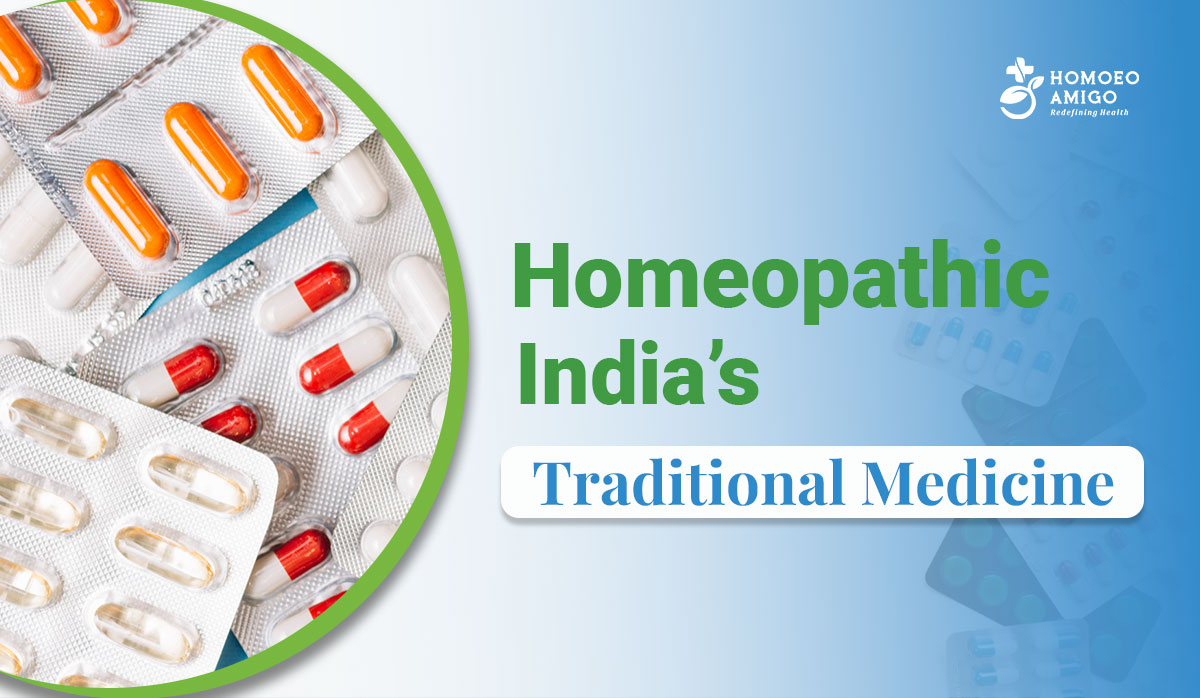Did you know that at present homeopathy holds is the third most popular method of medical treatment in India, ranking just after allopathy and Ayurveda. This recognition not only reflects the government’s acknowledgment of homeopathy but also highlights the diverse healthcare landscape in the country, where various traditional and alternative systems coexist alongside conventional medicine.
HISTORY OF INDIAN TRADITIONAL MEDICINE
Having its roots in India, traditional medicine has evolved continuously since the Vedic period. This ancient practice leans towards the preference for single crude drugs or blends, prioritizing them over the complexity of many-fold formulations. Despite the diverse origins and developmental timelines of these traditional medicinal processes, a common thread binds them through a shared foundation.
In other words, the fundamental principles and practices of traditional medicine in India revolve around the utilization of plants and plant-based preparations in healthcare. While the origins and evolution times may differ, the underlying philosophy remains consistent across these diverse medicinal traditions. The emphasis on using natural elements for medicinal purposes reflects a holistic approach deeply embedded in the cultural and historical fabric of Indian traditional medicine
Homeopathy: a complete system of medicine
- Homeopathic medicines aim to stimulate the self-regulatory mechanism for improving overall health.
- The focus is on reducing disease processes and susceptibility to illness universally, not limited to specific diseases.
- Often considered as a first option in certain medical conditions, potentially avoiding more costly and toxic treatments.
- Provides therapeutic alternatives when conventional treatments fail, are unavailable, contraindicated, or not tolerated.
- In many chronic diseases, homeopathic treatment can achieve remarkable results compared to conventional methods.
- Results depend on the extent of irreversible damage and the organism’s ability to recover.
- Homeopathy may be less suitable for conditions with severe irreversible damage, highly infectious diseases, or life-threatening situations.
- Specific surgical indications, deficiency diseases, and serious diseases with gross anatomical changes are better addressed by allopathic medicine.
- In incurable stages, homeopathic treatment can still provide relief to a significant extent.
- In injuries and accidents, homeopathic treatment is valuable and can complement surgical interventions.
- Homeopathic medicines, when used pre-and post-operatively, accelerate healing and counteract the effects of anxiety, shock, and anesthesia.
- Patients treated with homeopathy generally experience a more rapid post-operative recovery compared to those without such treatment.
Conclusion
Despite the diverse origins and developmental timelines of these medicinal traditions, a common thread binds them—a shared foundation centered around the use of plants and plant-based preparations in healthcare. This emphasis on natural elements for medicinal purposes reflects a holistic approach deeply embedded in the cultural and historical fabric of Indian traditional medicine.


0 Comments